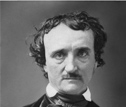- Ebook

COP $ 9.900
The author of the famed American poem 'The Raven', Edgar Allan Poe didn't just write poems. He was also a literary critic of them. 'The Rationale of Verse' is an essay on the writing of poetic verses. Poe argues for verses to be written in a systematic manner and style, in respect to the arrangement of the words and syllables. Amongst his various suggestions on how to go about this, he opines that, "one-tenth of it, possibly, may be called ethical; nine-tenths, however, appertain to mathematics." He also makes a claim of being among the few critics, in his time, to study the aspect of systematic verse composition for a modern language such as English.
The author of the famed American poem 'The Raven', Edgar Allan Poe didn't just write poems. He was also a literary critic of them. 'The Rationale of Verse' is an essay on the writing of poetic verses. Poe argues for verses to be written in a systematic manner and style, in respect to the arrangement of the words and syllables. Amongst his various suggestions on how to go about this, he opines that, "one-tenth of it, possibly, may be called ethical; nine-tenths, however, appertain to mathematics." He also makes a claim of being among the few critics, in his time, to study the aspect of systematic verse composition for a modern language such as English.
-
FormatoEbook
-
EstadoNuevo
-
Isbn4064066453664
-
Peso407.7 KB
-
Número de páginas33
-
Año de edición2021
-
IdiomaInglés
-
FormatoEPUB
-
ProtecciónDRM
-
ReferenciaBKW100109

